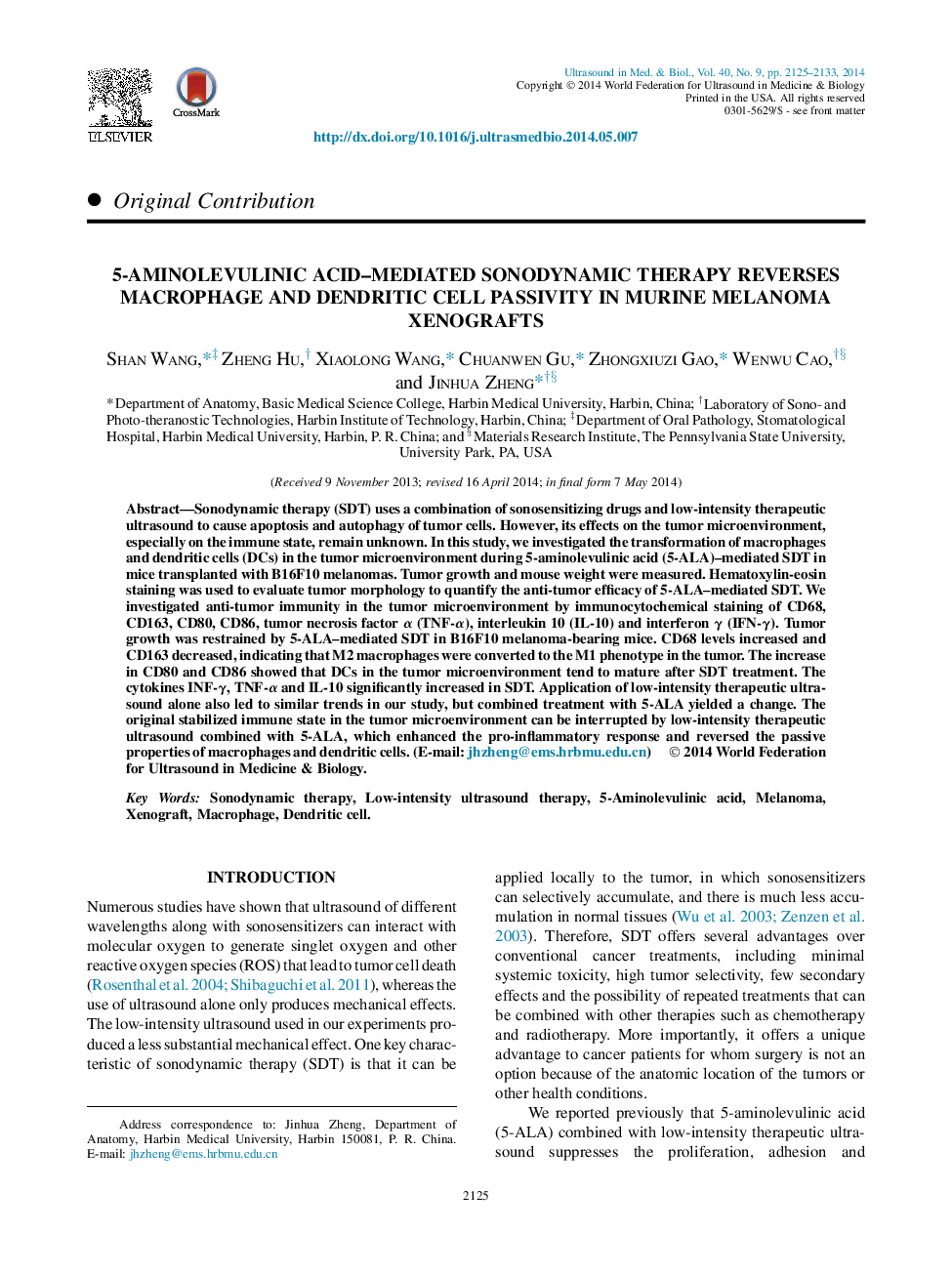| Article ID | Journal | Published Year | Pages | File Type |
|---|---|---|---|---|
| 10691627 | Ultrasound in Medicine & Biology | 2014 | 9 Pages |
Abstract
Sonodynamic therapy (SDT) uses a combination of sonosensitizing drugs and low-intensity therapeutic ultrasound to cause apoptosis and autophagy of tumor cells. However, its effects on the tumor microenvironment, especially on the immune state, remain unknown. In this study, we investigated the transformation of macrophages and dendritic cells (DCs) in the tumor microenvironment during 5-aminolevulinic acid (5-ALA)-mediated SDT in mice transplanted with B16F10 melanomas. Tumor growth and mouse weight were measured. Hematoxylin-eosin staining was used to evaluate tumor morphology to quantify the anti-tumor efficacy of 5-ALA-mediated SDT. We investigated anti-tumor immunity in the tumor microenvironment by immunocytochemical staining of CD68, CD163, CD80, CD86, tumor necrosis factor α (TNF-α), interleukin 10 (IL-10) and interferon γ (IFN-γ). Tumor growth was restrained by 5-ALA-mediated SDT in B16F10 melanoma-bearing mice. CD68 levels increased and CD163 decreased, indicating that M2 macrophages were converted to the M1 phenotype in the tumor. The increase in CD80 and CD86 showed that DCs in the tumor microenvironment tend to mature after SDT treatment. The cytokines INF-γ, TNF-α and IL-10 significantly increased in SDT. Application of low-intensity therapeutic ultrasound alone also led to similar trends in our study, but combined treatment with 5-ALA yielded a change. The original stabilized immune state in the tumor microenvironment can be interrupted by low-intensity therapeutic ultrasound combined with 5-ALA, which enhanced the pro-inflammatory response and reversed the passive properties of macrophages and dendritic cells.
Related Topics
Physical Sciences and Engineering
Physics and Astronomy
Acoustics and Ultrasonics
Authors
Shan Wang, Zheng Hu, Xiaolong Wang, Chuanwen Gu, Zhongxiuzi Gao, Wenwu Cao, Jinhua Zheng,
